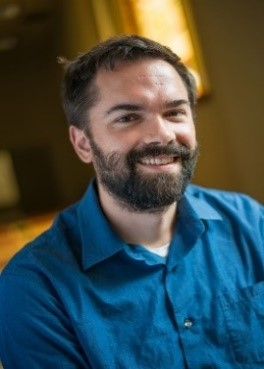 A team including Lehigh’s Industrial and Systems Engineering Professor Frank E. Curtis was awarded second place in the highly competitive Grid Optimization (GO) Competition, run and sponsored by the U.S. Department of Energy, through ARPA-E (Advanced Research Projects Agency-Energy).
A team including Lehigh’s Industrial and Systems Engineering Professor Frank E. Curtis was awarded second place in the highly competitive Grid Optimization (GO) Competition, run and sponsored by the U.S. Department of Energy, through ARPA-E (Advanced Research Projects Agency-Energy).
The competition was initiated to address the aging energy infrastructure and develop a more modern, resilient and secure power grid through the development of groundbreaking software. The goal of the GO Competition was to solve an advanced security constrained optimal power flow problem, intended to optimize grid design and operations, taking into account the possibilities of failures, such as of generators or transmission lines.
More than 25 teams of researchers and practitioners from across the country competed to produce software that would be evaluated on datasets—previously unseen by the participants—across four categories ("divisions"). An award of $100K would be given to each team that placed in the top 10 in each division. Team GO-SNIP, supported by a grant awarded to Lehigh University (PI: Frank E. Curtis), came in the top 10 (with respective placements of #4, #3, #2, and #2) in each of the four divisions, placing the team in second place overall with an award of $400K.
Optimal power flow problems are mathematical optimization problems that lie at the heart of electrical power grid planning and operation. Traditional techniques for solving such problems have been based on algorithmic strategies that were state-of-the-art decades ago, but have since been superseded by more advanced techniques that are now possible to deploy on contemporary computational platforms. The GO Competition was designed to propel the field further to solve next-generation power grid optimization problems.
The team's success can be attributed to the leading expertise in power systems and optimization algorithm design and software of the team members, which also included Daniel Molzahn (Georgia Tech); Andreas Wächter, Ermin Wei, and Ruby Tushen (Northwestern); and Elizabeth Wong (UC San Diego).
